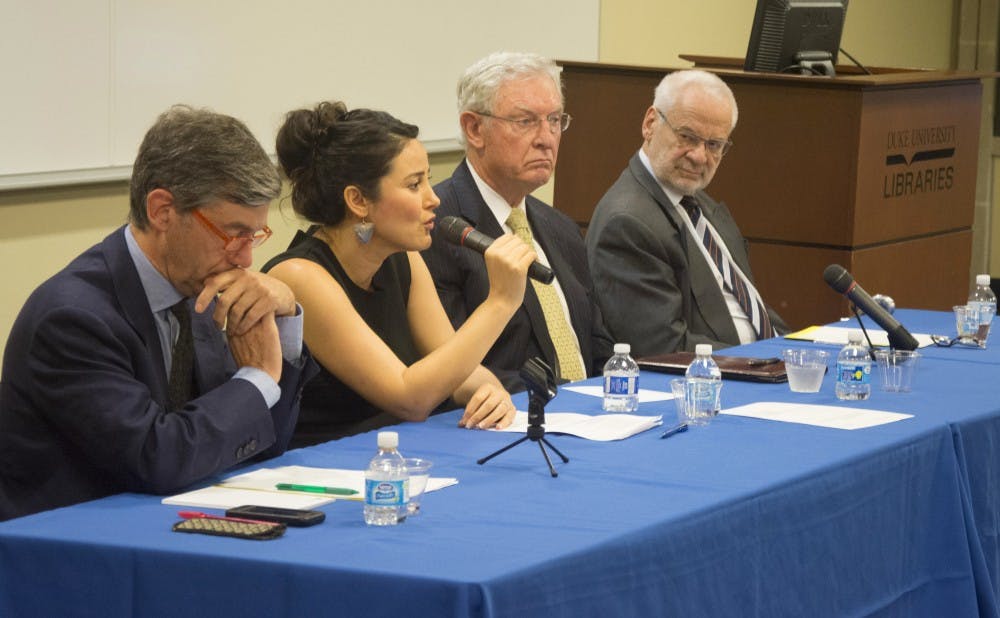Three of the most prominent voices on the current relationship between Turkey and the U.S. spoke at a panel Thursday about this year’s dramatic developments in Turkish, European Union and U.S. relations.
The forum, sponsored by Duke’s Center for Global and International Studies, focused on current crises between Turkey and what are generally seen as its two strongest Western supporters, as well as the impact these crises may have on the current U.S. presidential election. The panelists included W. Robert Pearson, former U.S. Ambassador to Turkey; Erhard Busek, former vice-chancellor of Austria and Gönül Tol, founding director of the Middle East Institute’s Center for Turkish Studies.
Although the forum was hosted by Duke faculty, most of the audience consisted of local Durham residents. Approximately 100 attendees filled up all the seats in the room and then occupied available floor space.
“I think we had an impressive turnout because now, especially, American society is really focused on [the fight against ISIS],” Tol said. “This conflict is of critical importance to the United States, and Turkey plays a big role there. When something like [the July 15 coup] happens, when thousands of military officers are fired, the public as well as the Obama administration must ask what will happen with the Turkish military, who’s such an important partner for us [in securing the Middle East].”
During the discussion, the panelists focused on the most recent coup d’état effort in Turkey and delineated the impact this unrest might have.
In July, a faction of the Turkish Armed Forces attempted to overthrow the state government. Turkey has experienced four coups and three coup attempts, but panelists referred to this incident as “the coup,” demonstrating the significance of the occasion.
“This day, July 15, is Turkey’s equivalent of our September 11. It’s a day they’re going to remember forever,” Pearson said.
Pearson went on to explain the importance of the U.S.’s communication with Turkey, noting the partnership between this centrally located Middle Eastern country and the West is crucial in the continuing efforts to stabilize the region.
Historically, dialogue has not been easy for the U.S. and Turkey, Pearson said. However, he noted the potential impact peaceful relations could have.
“If [the two countries] could find common ground, the force for stability would be very, very powerful,” he said.
This attention on the importance of diplomacy has the potential to play a key role in the current American presidential election, panelists explained. To whose advantage it will play, however, is still unclear.
“Mr. Trump’s rhetoric is very radical and that may appeal to some people, but on the other hand, Clinton has a track record,” Tol said. “Lots and lots of people criticize Trump very strongly due to his lack of experience, while Clinton has been around for a while, serving as the Secretary of State and coming into the election with more credibility when it comes to foreign policy. However, not all of the American electorate votes based on foreign policy affairs, many are more concerned with domestic issues.”
Correction: There have been four coups and three coup attempts in Turkey, not just five coup attempts. The Chronicle regrets the error.
Get The Chronicle straight to your inbox
Signup for our weekly newsletter. Cancel at any time.

